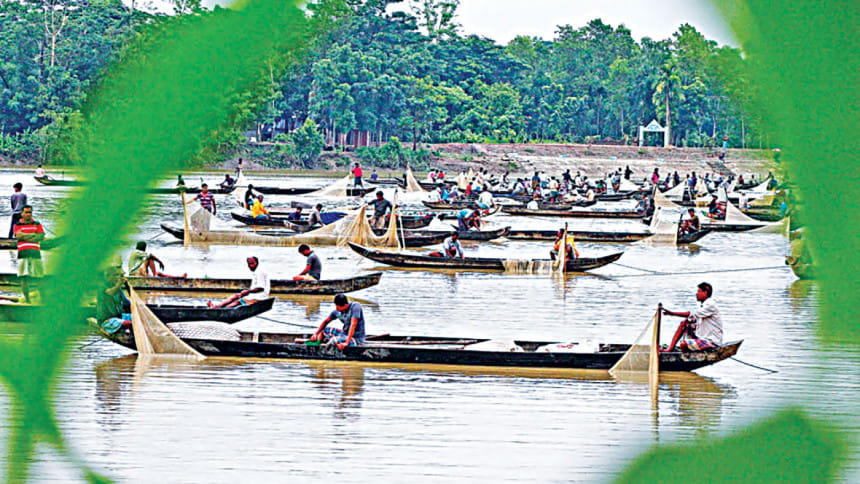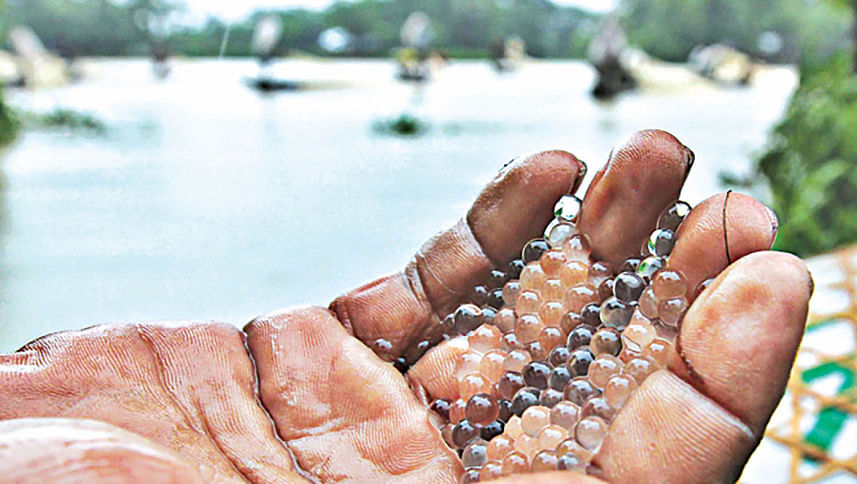Fishers worry over salinity, experts brush aside fear

Kamal Uddin Sawdagor has been collecting carp eggs in Halda river for around 50 years. However, this season, he has been frustrated as the carps are yet to release their eggs in the water.
"Brood fishes released some sample eggs on May 18. Several hundred egg collectors were in the river all night to collect some. However, none of us got any," he told this correspondent recently.
"Egg collectors believe that salinity in the water and the adverse impacts of climate change are responsible for the delayed spawning. We are uncertain whether the brood fish would release eggs in this season," he added.
However, researchers and experts have said there's nothing to worry about.
The salinity level indeed increased in Halda before Cyclone Mocha as there had been no rain for a long time in this region, said Halda researcher Dr Shafiqul Islam, also head of the department of biology, Chattogram Cantonment Public College.
"However, the salinity level has decreased after the cyclone due to the rain. When I tested the salinity of the river water around a month ago, I found the level 2 ppt (parts per thousand) in the spawning zones of the river. When I tested again on Saturday, I found the level 0.5 ppt in the same zones," he added.
The normal reference value for salinity in freshwater is either equal to or less than 0.5 ppt, said Dr Shafiqul.
"Research found that carp, including Rui, Katla, Kali Baush can survive and release eggs in rivers with salinity level 5 ppt. Even in an adverse atmosphere, they can survive in water with a salinity level of 14 ppt," he mentioned.

Echoing Dr Shafiqul, Prof Manzoorul Kibria of the zoology department at Chittagong University, said, "Earlier, we saw the brood fish releasing eggs in the first and second week of June. I don't believe there is anything to worry about regarding the salinity level in this matter. "
"Every year, indigenous carp species like Rui, Katla, Mrigel and Kali Baush from different rivers like the Karnaphuli and the Sangu come to the Halda and release eggs within the period from April to June (Bangla month Chaitra to Ashar). Different natural factors, such as the water temperature, strength of the current and thunderstorms and rain determine the environment best suited for the purpose," he added.
After collecting the eggs, they are nurtured for 18 hours in the traditional small mud ponds, and after 96 hours the eggs transform into fries, said Dr Kibria.

 For all latest news, follow The Daily Star's Google News channel.
For all latest news, follow The Daily Star's Google News channel. 



Comments